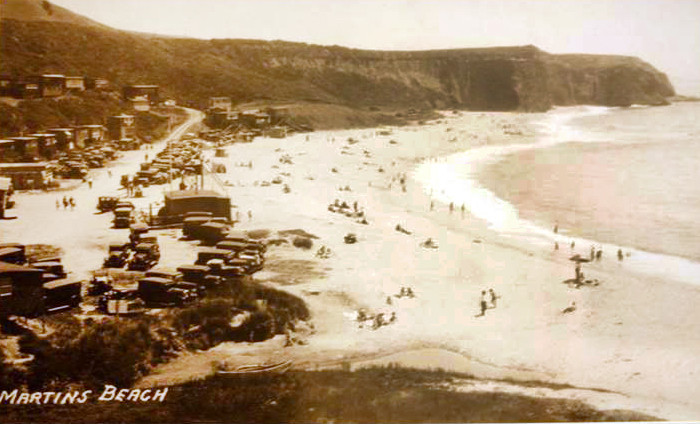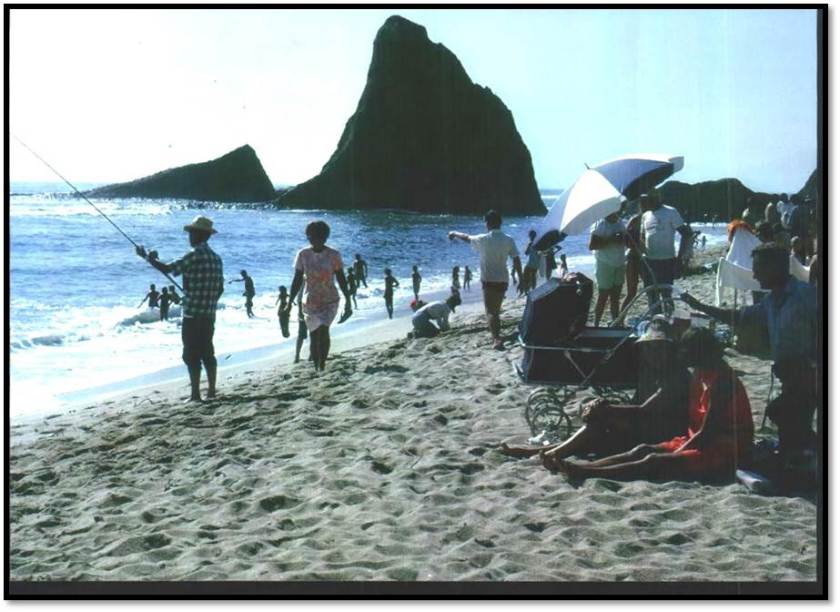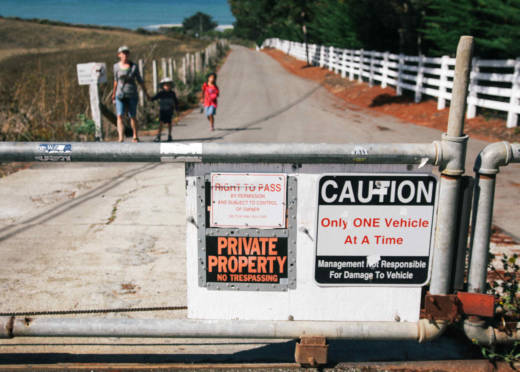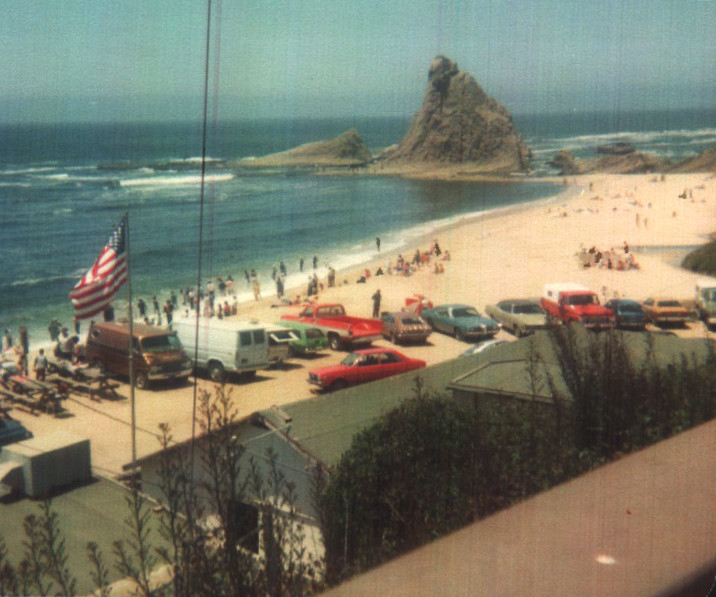In the latest chapter of a decade-long fight, California officials sued billionaire landowner Vinod Khosla on Monday in a bid to regain public access to Martins Beach, a scenic stretch of sand near Half Moon Bay.
Filed by the state Attorney General's office on behalf of the California State Lands Commission and Coastal Commission, the lawsuit seeks a court order demanding that the tech mogul remove all gates and signs on the only road leading to the crescent-shaped beach, one that runs directly through his adjacent property.
The lawsuit contends that without court orders, Khosla will keep imposing improper restrictions to public access to the popular beach, located about 35 miles south of San Francisco.
“This case goes to the heart of California’s public access mandate,” California Coastal Commission Chairman Steve Padilla said in a statement. “We cannot allow this to be chipped away each time someone purchases beachfront property — it’s a dangerous precedent for the future of public access in California.”

The dispute is one of several in California over who is allowed to use the coastline, which is often accessed through neighborhoods and private property. The state Constitution guarantees public access to all beaches below the high tide line.
This legal battle dates to 2008, when Khosla — a venture capitalist who co-founded the Silicon Valley technology company Sun Microsystems — bought an 89-acre coastal property for $32.5 million and closed a gate, put up a no-access sign and painted over a billboard at the entrance that had advertised access to the beach.
The longtime previous owners had allowed public access to the beach for a fee. Khosla's attorneys said the cost to maintain the beach and other facilities far exceeded the money the fees brought in.

In 2013, the nonprofit Surfrider Foundation sued, and a state appeals court ruled that Khosla needed to apply for a coastal development permit before closing off the main road.
After the U.S. Supreme Court declined to hear his appeal in 2018, Khosla continued to pursue legal action over what he claimed to be an infringement of his property rights. In the meantime, his lawyer said he kept the road open during daylight hours to paying visitors. State officials, however, contend that the gate to the road has not been consistently open.


